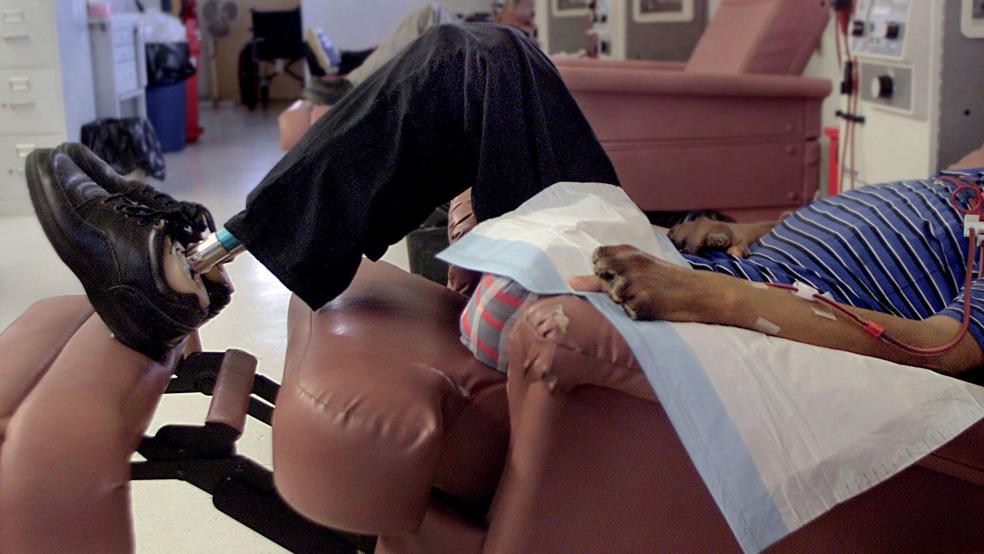President Trump will reportedly order a series of initiatives means to overhaul the nation’s kidney dialysis and organ transplant systems. The moves could save the federal government billions of dollars.
Politico’s Dan Diamond and Rachel Roubein reported:
“HHS will announce new payment models intended to shift treatment for patients with chronic kidney disease away from standalone clinics, arguing that receiving dialysis at home is both safer for patients and more cost-effective, four individuals familiar with the plan said.
“The health department also will announce an agency-wide initiative to encourage home dialysis and ramp up better prevention and screening for kidney disease.”
Why it matters: The nation’s kidney dialysis and organ transplant systems desperately need some attention. Some 30 million Americans suffer from kidney disease, which was the ninth leading cause of death in 2017, Politico said. Medicare spending on patients with chronic kidney disease or end-stage renal disease totaled more than $114 billion in 2016, or 23% of total Medicare fee-for-service spending.
“One of the key reasons for our failing policies is that kidney care in particular has some of the worst incentives in American healthcare,” HHS Secretary Alex Azar told the National Kidney Foundation’s annual patient summit in March, according to Politico.
More than 500,000 people with end stage kidney disease receive dialysis, The Washington Post’s Lenny Bernstein and Kimberly Kindy report, citing data from the National Kidney Foundation. “In the United States, most people receive hemodialysis, a treatment that requires a device to filter waste and toxins from their blood in hours-long sessions three times a week. Most receive it in clinics or private facilities that serve dozens of people each day.”
Two companies, DaVita and Fresenius Medical Care and DaVita, dominate the market for clinic-based hemodialysis and generate the lion’s share of $24 billion in annual dialysis center revenue. And, Bernstein and Kindy add, doctors are typically reimbursed at higher rates for treating dialysis patients than patients who don’t yet require such treatment.
The bottom line: “In all, the government believes it can make 17,000 more kidneys and 11,000 more hearts, livers, lungs and other organs available for transplant every year, as well as save money for Medicare and Medicaid, which cover much of the cost of dialysis and transplantation,” The Washington Post reported.





